Ranked! The 10 best players of the World Cup group stage
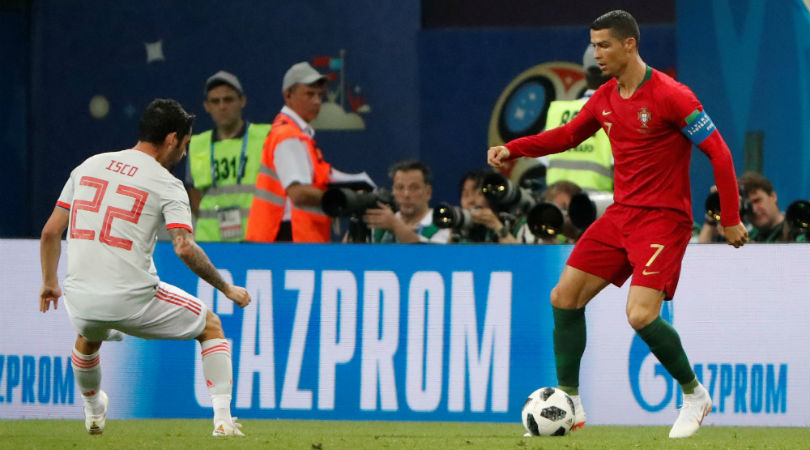
Who's stood out in the groups?
World Cup 2018's group stage brought plenty of interest, but who are the players to have impressed most in the first stage of the 2018 World Cup in Russia? We take a look at the best of the lot, with representations from every confederation except CAF: sadly, for the first time in 36 years, no African nation will compete in the knockout stages of the competition. Meanwhile, here's the players who excelled.
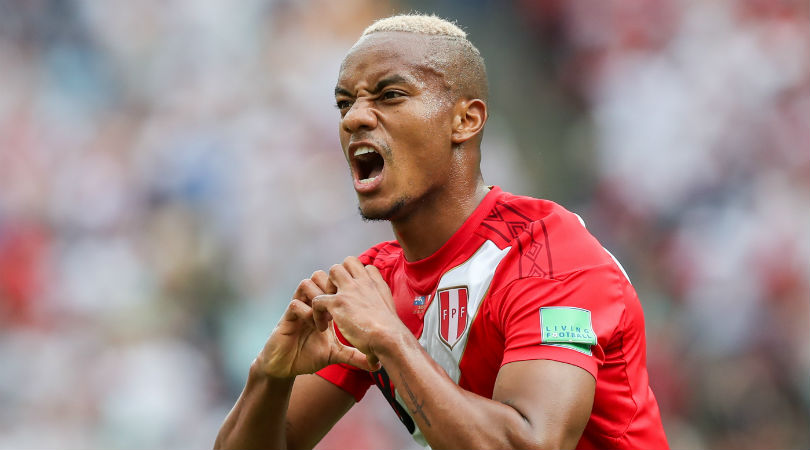
10. Andre Carrillo (Peru)
If you only had one eye on the World Cup, you may be forgiven for thinking Peru’s offering was nothing more than a set of incredibly enthusiastic supporters. Fans and team are on their way home from their first World Cup since 1982, but they left their mark both on and off the pitch. Off it, their supporters were magnificent, with tales of cars sold, jobs quit and – in one case – a man putting on 25kg to qualify for a disabled ticket to watch his country play in Russia. On it, they were a little disappointing and, according to Watford winger Andre Carrillo, disappointed with how the group stage played out. “We're slightly bitter because we're better than Denmark and at times we were even better than France,” said Carrillo, who shone for Los Incas in their first two matches and scored against Australia in the third.
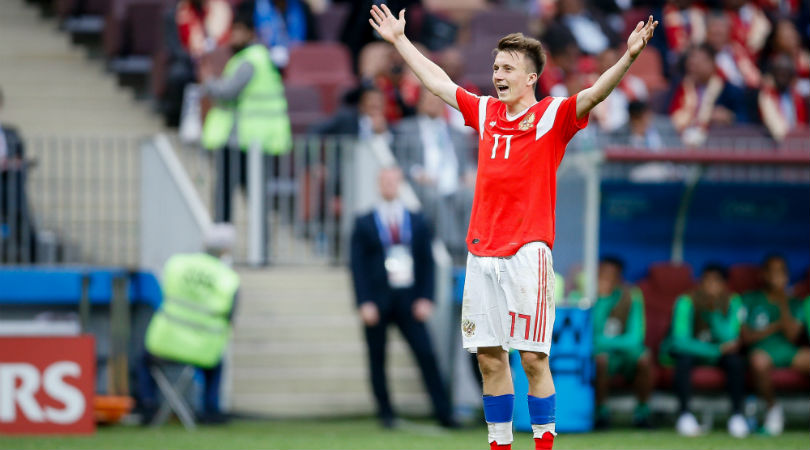
9. Aleksandr Golovin (Russia)
Pre-tournament, even the most ardent Russia supporters were worried their nation would be embarrassed by Egypt, Uruguay, and maybe even Saudi Arabia. A week later and the whole country was swept up in the kind of collective euphoria only a World Cup can bring, with a thumping win over Saudi in the first match and a convincing victory over Egypt in the second – albeit tempered by defeat against Uruguay leading to a last-16 tie against mighty Spain.
Artem Dzyuba – frame of Andre the Giant, feet of Andre Prokovsky – caught the eye with a couple of wonderful performances and Dennis Cheryshev came off the bench to dazzle and delight. The best of the lot, though, was Aleksandr Golovin, perhaps the only genuine star of this Russian squad. Few expected them to get this far: if they do beat Spain, Golovin will be the man they look to.
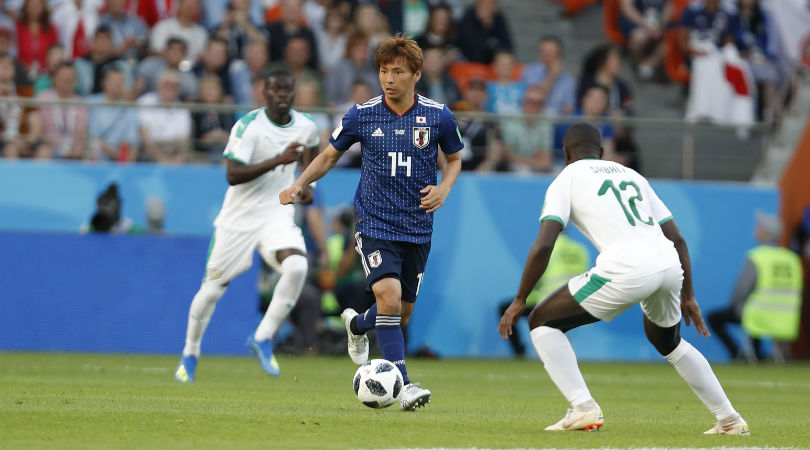
8. Takashi Inui (Japan)
“Inui has been performing beyond our expectations,” said Japan coach Akira Nishino before their final group game against Poland. “He has been excellent.” When your own manager is surprised and impressed by your performances, you know something has gone very right. In fact, the entire Japan squad – helped by Carlos Sanchez, admittedly – impressed in the first two matches, grabbing a massive victory over Colombia in the first game and playing out one of the matches of the group stage in a 2-2 draw with Senegal. For the final game against Poland, Nishino rested many of Japan’s best players, despite still requiring a point to ensure qualification. Inui, a busy midfielder who scored in their draw with Senegal, will be crucial in their second phase game against Belgium.
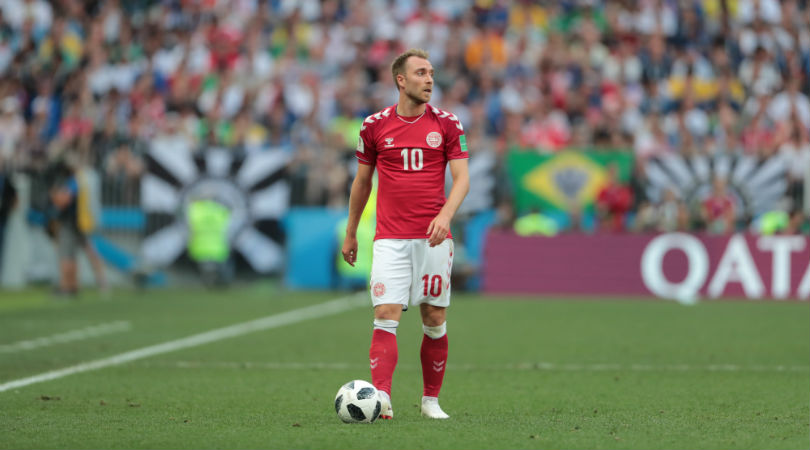
7. Christian Eriksen (Denmark)
Denmark were as reliant on Christian Eriksen in qualifying for the World Cup as Argentina are on Lionel Messi or Egypt on Mohamed Salah. That dependence has continued into the tournament proper and Eriksen, the youngest player at the World Cup eight years ago in South Africa, has taken on that responsibility and thrived. “Great things can happen,” was Denmark midfielder Thomas Delaney’s assessment of what it’s like to play alongside Christian Eriksen. There will always be a temptation when a relatively limited side plays with a talent that outstrips everyone else to lean on that talent, to always look to them when things aren’t going well. Denmark do that, a side that plays relatively functional football, with the exception of the Tottenham midfielder.
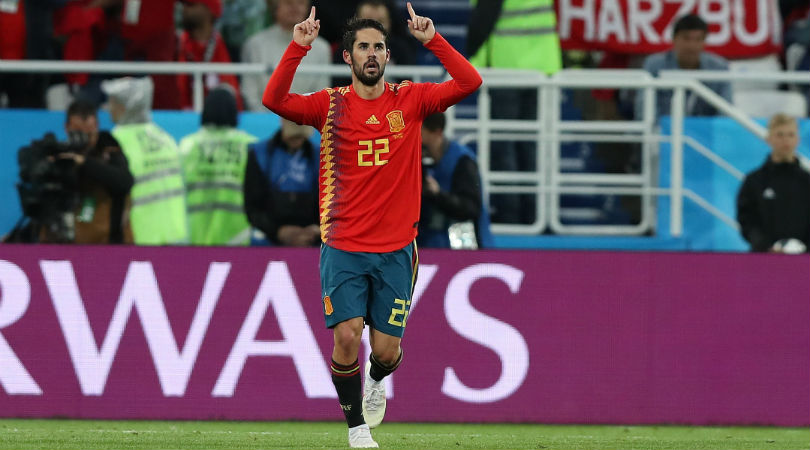
6. Isco (Spain)
That Isco is Spain’s primary creative force is remarkable considering Andres Iniesta and David Silva are both still in the team. When Julen Lopetegui was sacked on the eve of the tournament for agreeing to become Real Madrid’s new boss, Lopetegui favourite Isco had more reason than feel threatened under temporary boss Fernando Hierro, but the midfielder needn’t have worried.
With Iniesta winding down and David Silva well past his 32nd birthday, Isco was always going to apply for the role of Spain’s creator-in-chief. Having been slightly in the shadow of more imposing figures with both club and country, he may use this World Cup to step firmly into seniority.
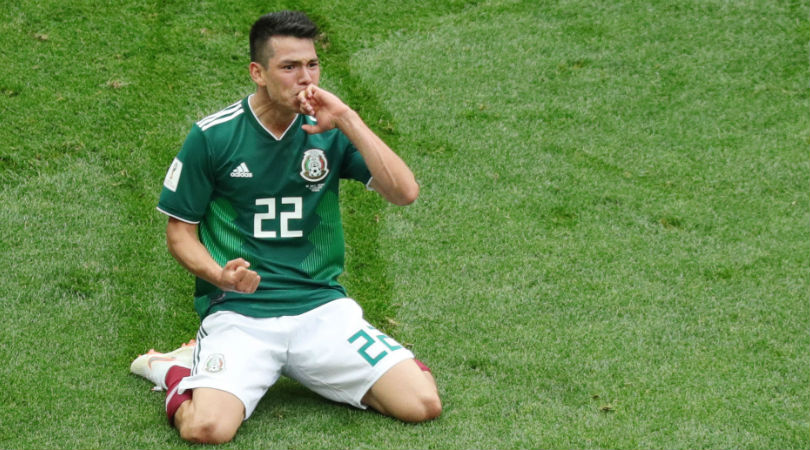
5. Hirving Lozano (Mexico)
The path from PSV to Barcelona is a well-trodden one, and Mexico’s bright young thing Hirving Lozano may well be the next to make the journey – particularly if he can continue his excellent group-stage performances into the knockouts. Having won the CONCACAF Champions League with Pachuca before his move to the Netherlands, Lozano’s success is no surprise to those at home and the links with the Catalan giants have increased as the tournament has progressed.
Lightning-fast and hard-working, Lozano was Mexico’s best player in their globe-rattling defeat of Germany. The man known as ‘Chucky’ was terrific against South Korea too. Up next, it's only Brazil.
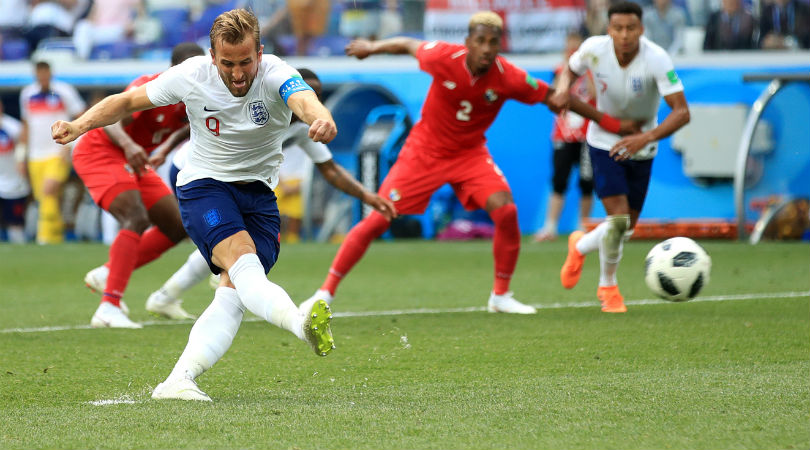
4. Harry Kane (England)
The Tottenham striker has played just 153 minutes of the World Cup but is the tournament’s top scorer, scoring a goal every 31 minutes. His five goals would have been enough for a share of the Golden Boot in both the 2006 and 2010 editions of the tournament and while there have been a couple of penalties and a freakish goal he knew very little about, the manner of his strikes underlines why many consider him to be the world's best No.9.
His brace against Tunisia were scored with the finest poacher’s instinct of knowing exactly where to be and when, and while it’s easy to gloss over the penalties versus Panama, they were dispatched with enough venomous confidence to evaporate traditional English fears about 12-yard tests in tournaments. Unlike many previous England players, Kane sees penalties not as a threat but as an opportunity. That self-belief could take him a long way.
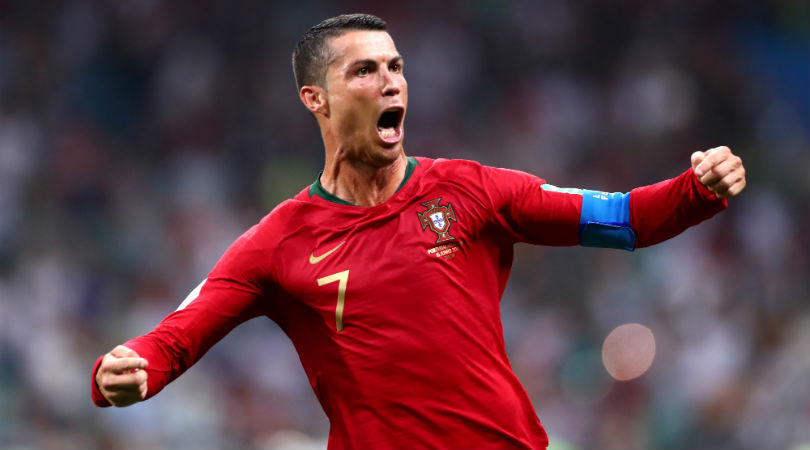
3. Cristiano Ronaldo (Portugal)
Ronaldo dragged a decidedly average Portugal to a 3-3 opening draw against Spain with a performance for the ages, providing further proof – if any were needed – of the Real Madrid man’s absolute and inarguable genius. Ronaldo’s influence on this Portugal side made the difference two years ago as they were crowned European champions in France and he has the ability and drive to haul Portugal into the latter stages of this competition too.
Despite Ronaldo failing in his previous 44 attempts from free kicks in major tournaments for the national team, when he stood over the set piece with the clock running down, there was a sense that what was about to unfold had an air of inevitability to it – and he duly overtook Ferenc Puskas to become Europe’s all-time international.
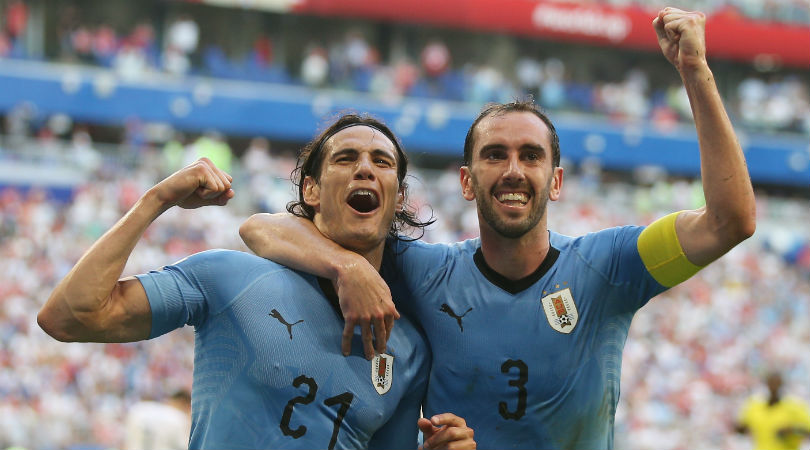
2. Diego Godin (Uruguay)
Uruguay were as good as they needed to be in the groups: despite not really impressing, they've made the knockout stages of the World Cup as one of only three nations to win all three of their first round matches. In the weakest group alongside hosts Russia, Saudi Arabia and Egypt, many expected the mouth-watering strike partnership of Edinson Cavani and Luis Suarez to fill their boots but it was a partnership of a different kind that stole the limelight – the centre-back duo Jose Maria Gimenez and Diego Godin.
Uruguay were the only team to reach the knockouts without conceding a goal, and a big part of that defensive impenetrability was thanks to Godin. He's 32 now and has shown signs of creaking a little, but there’s a good argument that he’s the best central defender in the world again. Up next: cross-city club rival Cristiano Ronaldo. Bring your popcorn.
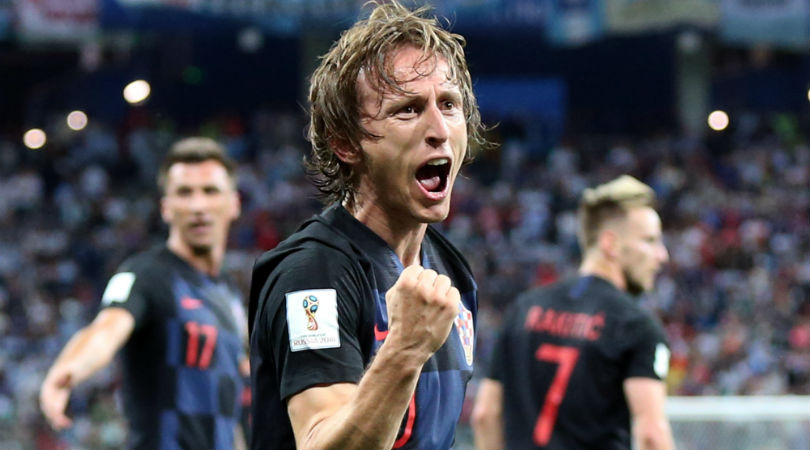
1. Luka Modric (Croatia)
Another of the nations who qualified for the knockout stages with a 100% first round record were Croatia, who topped a group that many considered to be the group of death. A 2-0 victory over Nigeria in the opening match was followed by a 3-0 humbling of Argentina, with Croatia going from tournament dark horses to genuine contender. Topping the group has seen them land an eminently winnable match against fellow Europeans Denmark in the last 16.
Orchestrating it all is the remarkable Luka Modric. His performances are all the more exceptional considering the circumstances: charged with perjury in March, after his testimony at the trial of former Dynamo Zagreb director Zdravko Mamic, he came into the tournament deeply unpopular with a sizeable slice of Croatia's deeply divided fan-base. Modric has continued to guide his country with understated brilliance, once again proving his status as one of this generation’s great midfielders.
